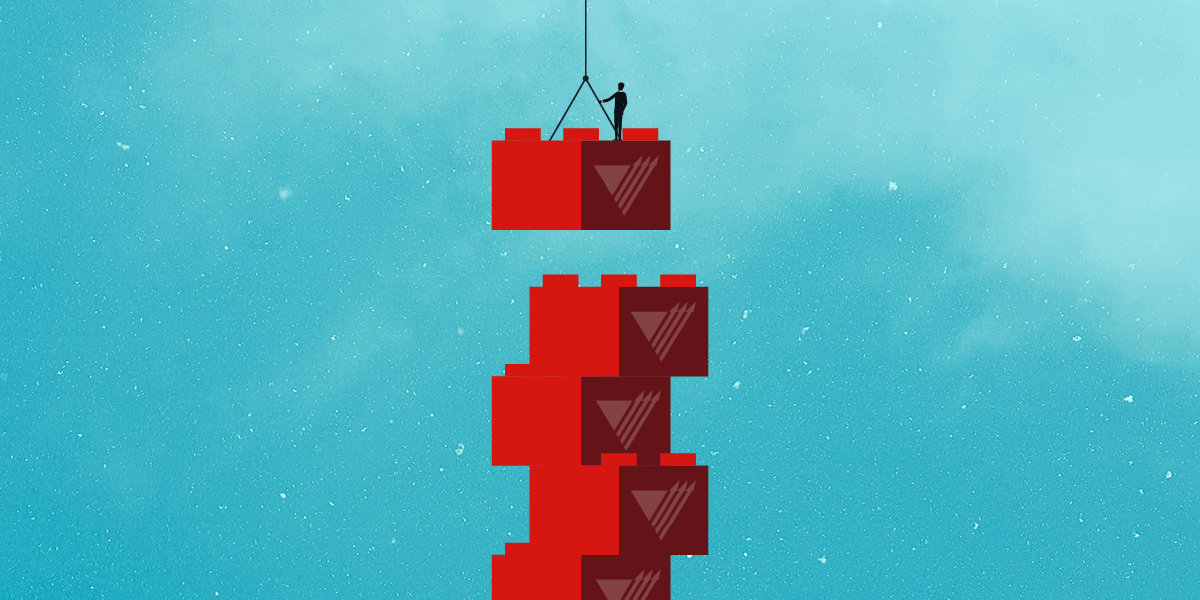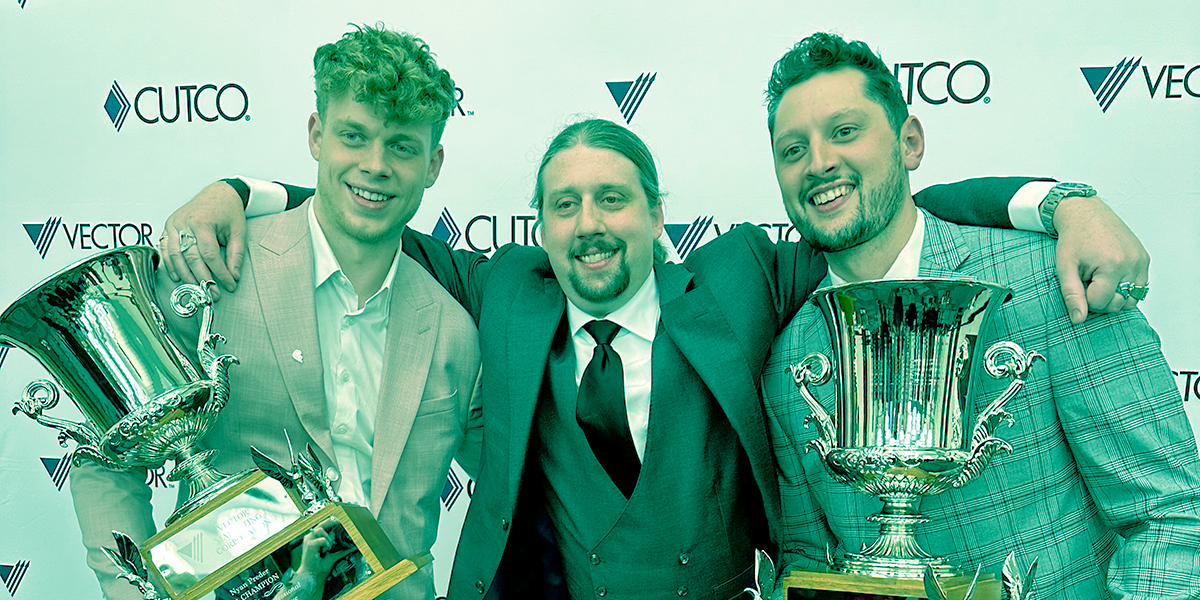
Humans are creatures of habit.
We get used to doing things a certain way, and once we get into a groove, it can be hard to get out of it.
This can be a challenge when the habit isn’t good for you. An example from my own life: A few years ago, when I was in my early twenties, I decided to try a vape out of curiosity. I had no idea that it would become a habit that would last into my thirties—and it took a herculean effort to get over it.
On the flip side, it’s often hard to pick up good habits, and far easier to abandon them. This is in part because we humans like immediate results. Often, bad habits give us that instant reward (like the nicotine high I used to get from a vape hit), but good habits take longer to pay off.
Putting on SPF sunscreen every day in your twenties is a good habit to form, for example, but it won’t pay off until your 30s, when you see how good your skin looks compared to your peers who skipped the sunscreen.
Looking back, there are lots of habits I wish I’d developed in my twenties, because the longer a good habit is in place, the easier it is to keep.
In this article, I’ll shed light on 5 of the most important habits people in their twenties should focus on, and give you tips on how to keep up the good work until it becomes second nature.
The science of good habits
Before we get into the good habits I recommend for those in their twenties, it’s important that you understand the science behind habit forming. Take it from me—when you can visualize what’s happening inside your brain and body as you form habits, it will be much easier to pick up good habits and shed bad ones.
How long does it take to form a habit?
There is no set time period for forming new habits. It all depends on the habit itself, your commitment to it, and even things like your genetics.
You may have heard that it takes 21 days to form a good habit—that’s a common statistic thrown around that is (unfortunately) overly optimistic.
A 2025 report from the University of South Australia compiled a number of habit-building studies to find a more accurate number. When answering the question, “How many days does it take to form a habit?” they discovered that it can take anywhere from two months to just over a year.
The median number of days it took to build habits was around 59 to 66 days—quite a bit longer than the three weeks cited by previous studies.
Don’t let that discourage you, however. Building good habits and breaking harmful ones takes time and patience, and it’s essential that you acknowledge this and give yourself grace when it’s taking longer than expected.
What happens in the brain when we build good habits?
Let’s talk nerdy for a second about what’s actually happening in your brain when you’re building habits.
When you first try something new—like meal prepping on Sundays or tracking your expenses—your brain is working overtime to absorb the new information.
According to researchers at Western University Canada:
“When we first learn something new, it requires active focus and attention from areas of the prefrontal cortex. But as we repeat the task, the basal ganglia takes over, allowing us to perform the action almost automatically. This shift from conscious effort to subconscious behavior is what makes habits so powerful.”
In other words, at first, you have to concentrate hard on that new habit. But keep at it, and eventually your brain rewires itself so you can do it on autopilot. That’s why the first few weeks of any new habit feel like pulling teeth, but if you stick with it, it gets way easier.
This is exactly why your twenties are such a perfect time to build good habits. Your brain is still super flexible (scientists call this “neuroplasticity”), meaning it can create these automatic pathways more easily now than later in life. The habits you lock in during this decade become the foundation that makes your thirties, forties, and beyond much smoother.
The habit loop: how habits actually work
Understanding the habit loop is key to making good habits stick. It’s a simple three-part process that explains why we do what we do:
Next is the routine—the actual behavior you perform. This is what we typically think of as the “habit” itself. Finally, there’s the reward—the positive feeling your brain gets after completing the routine. Your brain loves rewards, and they’re the reason habits stick around—for better or worse.
@workingstudentlife now that you know how habits are formed, check the link in bio to learn the 5 habits to work on in your 20’s #college #collegestudent #habits #studytok #thevectorimpact ♬ original sound – The Vector Impact
The magic (or danger) happens when your brain starts to anticipate the reward as soon as it notices the cue, creating a craving that drives the routine. That’s why it can feel almost impossible to resist checking your phone when you hear a notification—your brain is already expecting that little dopamine hit.
When building good habits in your twenties, you can hack this loop to your advantage. Create obvious cues (like leaving your workout clothes by your bed), make the routine as easy as possible at first, and give yourself clear rewards. Over time, the habit becomes automatic, and you might even start to crave the routine itself.
➡️ For more on creating those brain connections and establishing good habits, check out our post on psychological anchoring.
5 good habits to work on in your twenties
Now that you can visualize what’s going on inside your mind as you form habits, let’s get into the good habits themselves. Here are my top 5 behaviors to focus on now, for major rewards when you’re older.
1. Developing a good sleep routine
I’m starting with this one, because it will have the greatest impact on your ability to form good habits and break bad habits overall.
When you’re a busy college student or working long hours at your first job, it may seem like keeping a steady sleep schedule is impossible. It may also feel unnecessary because you likely have more energy when you’re in your twenties than any other time in your life.
But getting seven or eight hours of sleep a night does more than just fill you with energy the next day. It improves your physical health, helps you focus, reduces stress, and just makes life easier.
The first step toward developing a good habit of sleep is figuring out your ideal, natural hours in bed. Some people prefer to go to bed earlier and wake up earlier, while others prefer the night hours and a later morning.
Unfortunately, life obligations can make it hard to figure this out—if you have to be at the office every day at 9 a.m., then you can’t really test out what it’s like to sleep until 10 a.m.
But as best you’re able, on weekends and holidays, try experimenting with your sleep. Check in with your body every hour as night approaches and after you wake up; when do you start feeling sleepy? How energetic do you feel after getting out of bed? When does energy naturally start to ebb and flow?
When running this experiment, avoid using screens the hour before you go to sleep, as staring at a glowing screen impacts your natural sleep rhythm.
Once you figure out your natural sleep pattern, you can start building mini-routines around it that help you stick to your target sleep schedule.
For example, I like to charge my phone in a completely different room one hour before I go to bed, then read a book for a while until I’m sleepy. In the morning, I wake up and write in my journal and do 20 minutes of stretching as a way to let my brain and body know it’s time to start the day.
Your sleep routine will naturally change as you age, but developing good bedtime habits now means those changes will be easier to deal with later on.
2. Taking care of your body (inside and out)
Your twenties are usually when you’re at your physical peak. You recover quickly and might feel like your body is invincible.
This is exactly why now is the perfect time to start caring for your body—the habits you form will determine how well it serves you for decades.
Start with the basics: nutrition
Learning to grocery shop and cook for yourself is a big part of being a happy, healthy adult. I know it’s tempting to live off takeout, but cooking your own food is cheaper, healthier, and an essential life skill.
Start simple. Learn five or ten basic recipes you can make without instructions. Stock your kitchen with versatile ingredients—get essential spices, a few forms of protein (meat, beans, eggs, etc.), and routinely gather fresh produce (which is usually the cheapest thing at the grocery store). Make a habit of going grocery shopping once a week to restock, and it will be much easier to build a habit of healthy eating.
Preventative healthcare isn’t just for old people
Don’t put off going to the doctor, even if you feel healthy. You want to establish relationships with healthcare providers now, so that you can monitor your health and prevent aches, pains, and illnesses later on.
You should be seeing your primary care doctor for a check-up at least once a year, and going to the dentist every six months (on top of daily brushing and flossing). Annual eye exams are also essential, and women should visit their OB/GYN once a year as well.
Your skin deserves attention too
The habits you form now determine how your skin ages. If you want to prevent wrinkles and spots in your thirties, you should build these habits:
- Wear sunscreen daily (even when it’s cloudy)
- Find a basic skincare routine and stick with it
- Stay hydrated (seriously—this is the big one)
- Remove makeup before bed
You don’t need to spend a fortune on serums and creams. For most people, a good moisturizer, plus sunscreen and soap/water, will do the trick.
Move your body regularly
Find movement you actually enjoy—hiking, dance, recreational sports, yoga, or just walking while listening to podcasts. The specific activity matters less than making movement a regular part of your routine.
Develop good posture
Take it from someone who spent a decade hunched over his laptop at a desk job. Fixing my posture has by far been the hardest bad habit to break, because sitting is so subconscious. If I could go back in time to my twenties, I would practice sitting up straight with both my feet on the floor, and I’d invest in a standing desk way sooner than I did.
Your body is the only one you get. Your twenties are the time to start treating it right, before problems arise, not after.
3. Reading and learning new information (without relying on AI)
When you’re in high school and college, you’re required to put your brain to work every day.
Once that formal education ends, many people stop challenging their brains with new information. But continuing to learn is one of the best habits you can form in your twenties.
When you stop learning, your brain gets lazy. Studies show that people who maintain learning habits throughout life have better cognitive function as they age, better memory, and even lower risk for conditions like dementia. Plus, in today’s job market, continuous learning is practically a requirement for career advancement.
In recent years, it’s become very tempting to let AI handle the mental lifting. Need information? Ask ChatGPT. Writing something? Let an AI draft it.
But while these tools can be helpful, relying on them too heavily could stunt your own cognitive development. The process of struggling through a problem or researching a topic in depth builds neural pathways that make you smarter over time.
Try reading actual books (not just summaries), taking classes in new subjects, writing without AI assistance, or attending lectures where you can learn directly from experts. For more tips on how to keep your brain engaged, check out my article on how to be a lifelong learner.
4. Developing good financial habits
For many of us, our twenties are when we are responsible for our own finances for the first time.
You’re getting paid by your job, and your parents and school administrators aren’t there to tell you how to divide up that money and make it work for you.
The first step toward building good financial habits is to keep a budget, and we have just the thing for that. Here’s our article on building a budget, and it comes with this handy free template to get started:
Sign up now and teach yer expenses who's boss.
Budgeting is the first good habit you can form around money, but there’s a lot more to it than that. You may need to build habits around paying off your loans, managing your savings and investments, and building up an emergency fund.
Fortunately, we have guides around all of these money topics that will help, so check out these resources:
5. Creating a practice of reflection or mindfulness
If I could go back to my twenties, the good habit I’d most want to develop earlier is some form of regular reflection or mindfulness practice.
When you’re young and rushing between classes, jobs, and social events, it’s easy to live on autopilot. You can go weeks or months without ever really checking in with yourself about how you’re doing or where you’re headed. But taking even a few minutes each day to pause and reflect can dramatically improve your mental health and decision-making.
Mindfulness doesn’t have to mean meditation (though that’s one approach). It could be journaling, taking solo walks without your phone, or simply sitting quietly with your thoughts for five minutes each morning. The form matters less than the consistency—making space regularly to step back from the chaos of everyday life.
This habit helps you notice patterns in your thoughts and behaviors before they become problems. It gives you a chance to course-correct when you’re veering away from your values or goals. And perhaps most importantly, it helps you process emotions in real-time rather than letting them build up.
Here are some resources to help you get started with mindfulness and reflection practices:
Building these five habits in your twenties sets you up for an even better future. Good sleep, physical health, continuous learning, financial literacy, and mindfulness are investments that compound over time. They might seem small or even unnecessary now, but trust me, your thirty-something self will be grateful you started early. You don’t have to perfect these habits overnight. Just begin somewhere, be consistent, and watch how these small daily choices transform your life.


















